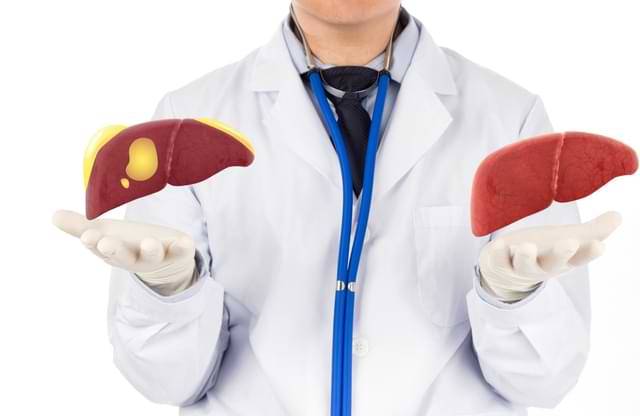What do you know about non-alcoholic fatty liver disease?
Non-alcoholic fatty liver disease (NAFLD) refers to liver conditions that affect individuals who consume very little to no alcohol. In this disease, a high amount of fat is stored within the liver cells. This condition is quite common globally and is one of the most common chronic liver diseases.
Many individuals with NAFLD can also develop non-alcoholic steatohepatitis (NASH). NASH is an aggressive form of fatty liver disease accompanied by inflammation in the liver. This condition may progress to cirrhosis, advanced scarring and liver function failure. The damage is quite similar to the damage that is caused as a result of excessive alcohol consumption.
How would you know that you have non-alcoholic fatty liver?
NAFLD is also called a silent liver disease. This means that it can happen without showing any potential symptoms. It is because most people who have NAFLD live with this condition without any liver damage being developed. However, as discussed earlier, few individuals develop NASH, which shows potential symptoms. Still, these symptoms may take years to build. Some of the most common symptoms of non-alcoholic fatty liver include weakness, fatigue, yellowish eyes and skin, weight loss, prolonged-lasting itching, and spider-like blood vessels on the skin.
Sometimes, NASH may turn into cirrhosis, which is the hardening of the liver. This is a pretty severe condition and shows symptoms such as internal bleeding, confusion, fluid retention, and muscle wasting. Individuals with cirrhosis may also develop liver failure with time, and some may even require a liver transplant.
Are you at potential risk of non-alcoholic fatty liver disease?
The exact cause of NAFLD is unknown; however, obesity is considered the most common cause of the disease. In addition, young adults and children are more likely to get this disease, while it is also widespread in individuals who are in their middle ages.
A few risk factors of this disease include individuals who have diabetes, being overweight, women with hormonal imbalances, estrogen dominance, high blood pressure, and high blood fat levels.
How would you diagnose and treat non-alcoholic fatty liver disease?
Although non-alcoholic fatty liver happens without developing any potential symptoms, you can diagnose the condition through a routine blood test to check your liver. Abnormal blood test reports may indicate that you suffer from this silent liver disease, especially if you are overweight.
Imaging tests, such as MRI, Ultrasound, of the liver may also exhibit some fat deposits. This can be helpful in the diagnosis of the disease. First, however, a liver biopsy is carried out to confirm that you have this disease.
No special treatment is required if you have NAFLD without any medical problems. However, it is essential to control or reverse the fat buildup in the liver. You can do this by making specific changes in your lifestyle, such as losing some weight, controlling diabetes, lowering cholesterol levels, and altogether avoiding alcohol.
However, if you have NASH, your liver damage might continue to progress. This requires changing your lifestyle and getting treatments such as medication to reduce blood pressure, medication to reduce triglycerides or cholesterol, medications to control diabetes, consulting a liver specialist, limiting OTC drugs, and avoiding alcohol consumption.
When do you need to consult your health care provider if you have NAFLD?
Suppose you encounter unexplained weight loss. Fatigue, bleeding, fluid retention, or loss of appetite, you should be concerned and consult a health care provider. If you are aware of your silent NAFLD and your liver is not being damaged, you should still talk to a dietician or a nutritionist to provide you with a plan to change your eating habits for a healthy lifestyle.
It would help if you learned more and more about your condition. For example, taking more medications can also be harmful to your liver, whereas changing your lifestyle by incorporating good eating habits is beneficial for a lifetime. Visit Fantastic Life, a healthcare and nutritionist website, where you can consult the best nutritionists/health experts and get all possible information regarding various conditions and how you can revert them by adopting a better lifestyle.

